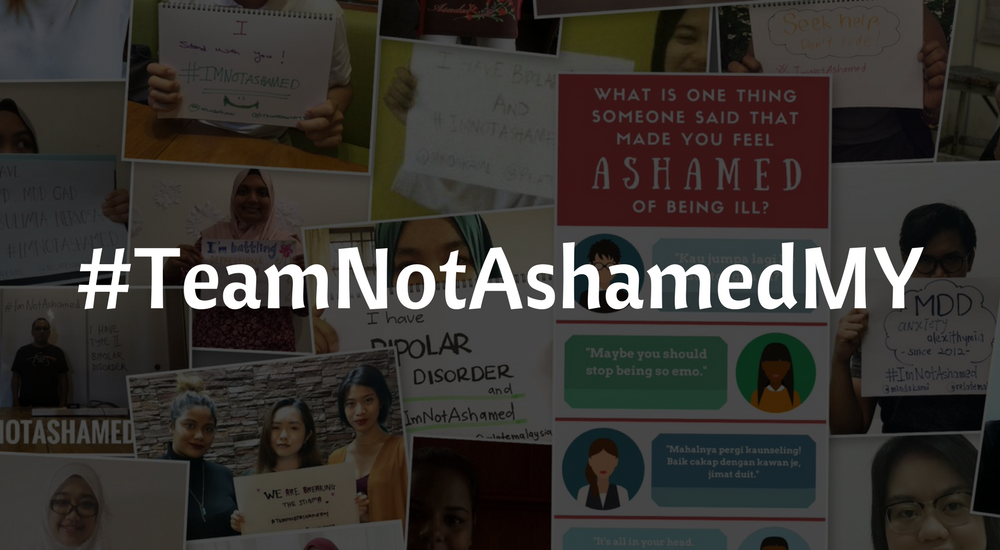First of all, we’re sorry. We weren’t joking, there was an office debate about publishing this.
It’s not that we’re oblivious about the seriousness of mental health. We thought nobody would be interested in reading about it.
That’s where we were wrong, because that just gives us another reason to educate and create awareness.
We didn’t know this before writing this article, but an estimated 29.2% of adult Malaysians suffer from mental illness.
A 29.2% estimate might not raise any alarms, but if we’re taking the Malaysian population as of 2016, among the population of 22,234,217 Malaysians above the age of 24, around 6 million Malaysians suffer from mental illness.
And no small part of this problem lies in our perception of mental illness in Malaysia. We’re not asking to celebrate it or glorify it, as has been done in certain circles. But Malaysians should be more collectively aware of how mental illness is real and it needs to be treated and talked about, not hidden away.
Conversation surrounding mental illness in Malaysia usually begin and end with:
- Joking asides thrown at Tanjung Rambutan
- “You’re making it up.”
- “Just get over it. It’s all in your head.”
Some of the more religious types are even proclaiming that prayers can solve the problem, or that even mental illness only occurs to those who are not devout. Of course, prayer can be one of the paths to living a better life with mental illness, but it is not the be all, end all of solutions.
Unfortunately most of the commonly diagnosed cases of mental illness in Malaysia are lifelong conditions.
Others like depression may be more temporary, but it can be deadly, as can be seen with the sudden tragic death of Robin Williams in 2015. Ninety percent of all people who die by suicide have a diagnosable psychiatric disorder at the time of their death.
Who knows how many lives have been taken by this silent killer in Malaysia?
A Movement Derived From #ImNotAshamed
In fact, Dr. Chua Sook Ning, a clinical psychologist and founder of Relate, an organisation promoting understanding and treatment of mental health illnesses has previously said that:
“In self-evaluations questioning their mental health, people are more likely to say no than yes so the numbers could be much higher.”

In doing a small part to combat the perception problem of mental illness in Malaysia, Minda and Relate Malaysia have joined forces to rally behind an international hashtag movement #ImNotAshamed with their own addition, #TeamNotAshamedMY.
#ImNotAshamed is a viral hashtag movement started by Rachel Griffin, a singer/songwriter, mental health advocate and contributor for The Huffington Post.
“When you ignore it or don’t seek treatment for a long time it tends to get more and more difficult. It just takes over,” she said in a phone interview with The Washington Post. “It’s a scary place to be in when you’re fearing your own mind.”
Giving The Silent Sufferers A Voice

To add to Rachel’s points, Relate.com states that “People with mental health conditions often feel ashamed for being ill. They are afraid that they would be ostracised, feared and rejected by society, family and friends. Many of them have trouble finding or holding on to jobs once employers find out about their mental health history.”
They go on to say that if this was a physical illness, you would go out to seek treatment, in either clinics or hospitals.
This is a good point, because no one would go up to a person who amputated their leg and say that “You just need to pray and get over it.”
Prayers will be seen as a supplement, but the patient will still go through the motions of treatments in hospitals or clinics.
Relate also asks people to imagine having to go through treatments in silence due to the shame, and feeling weak because you were too weak to prevent yourself from falling ill.
This shame is real, and it stops the sufferers from getting the help they need.

Malaysians Are Rising In Solidarity
The response thanks to this movement has been moving. A viral post about a man who became a free thinker by the age of 12 due to his suffering of OCD as a mental illness was a response to this #TeamNotAshamedMY movement.
Others have expresssed their support for the project.

It is heartening to see the continuing support that the mentally ill are getting from this movement, if at the very least to prove that they are not alone in their struggles.
On top of just giving the suffering silent in Malaysia a community that they can feel a part of, it is also important to spread the word about mental illness to the individuals who may otherwise never figure out what is wrong with them.
Those who are still interested in joining #TeamNotAshamedMY can follow the steps below and let your voice be heard.

6 million Malaysians, and maybe more are suffering. Social media won’t solve everything and a hashtag might be meaningless in itself, but it’s a start towards changing things here.
Feature image credit: #TeamNotAshamedMY













